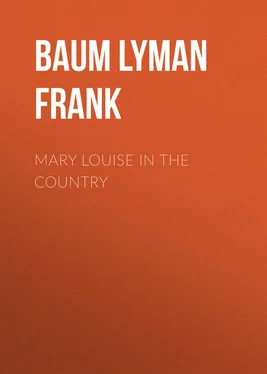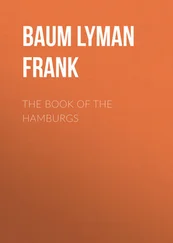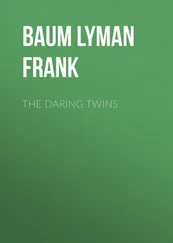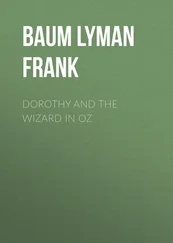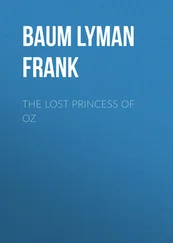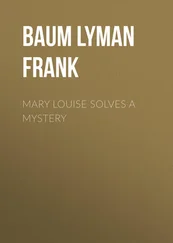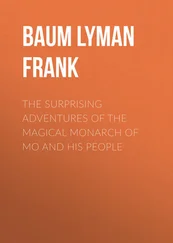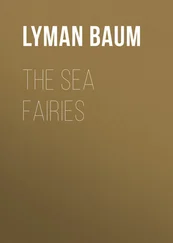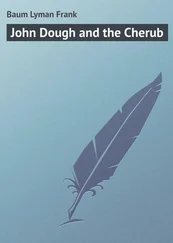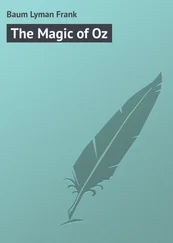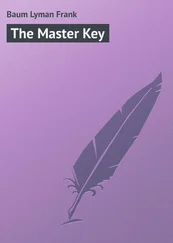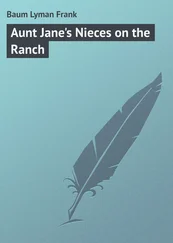Lyman Baum - Mary Louise in the Country
Здесь есть возможность читать онлайн «Lyman Baum - Mary Louise in the Country» — ознакомительный отрывок электронной книги совершенно бесплатно, а после прочтения отрывка купить полную версию. В некоторых случаях можно слушать аудио, скачать через торрент в формате fb2 и присутствует краткое содержание. Жанр: foreign_antique, foreign_prose, на английском языке. Описание произведения, (предисловие) а так же отзывы посетителей доступны на портале библиотеки ЛибКат.
- Название:Mary Louise in the Country
- Автор:
- Жанр:
- Год:неизвестен
- ISBN:нет данных
- Рейтинг книги:3 / 5. Голосов: 1
-
Избранное:Добавить в избранное
- Отзывы:
-
Ваша оценка:
- 60
- 1
- 2
- 3
- 4
- 5
Mary Louise in the Country: краткое содержание, описание и аннотация
Предлагаем к чтению аннотацию, описание, краткое содержание или предисловие (зависит от того, что написал сам автор книги «Mary Louise in the Country»). Если вы не нашли необходимую информацию о книге — напишите в комментариях, мы постараемся отыскать её.
Mary Louise in the Country — читать онлайн ознакомительный отрывок
Ниже представлен текст книги, разбитый по страницам. Система сохранения места последней прочитанной страницы, позволяет с удобством читать онлайн бесплатно книгу «Mary Louise in the Country», без необходимости каждый раз заново искать на чём Вы остановились. Поставьте закладку, и сможете в любой момент перейти на страницу, на которой закончили чтение.
Интервал:
Закладка:
But Mary Louise, although only a few years older than Ingua, had had a good deal more experience and was, moreover, a born diplomat. Astonished though she was, she quickly comprehended the peculiar pride exhibited in a refusal to accept food from a stranger and knew she must soothe the girl's outraged spirit of independence if they were to remain friends.
"I guess I'll have to beg your pardon, Ingua," she said quietly. "I was grieved that you are so often hungry, while I have so much more than I need, and the money which I spent was all my own, to do what I liked with. If I were in your place, and you in mine, and we were good chums, as I know we're going to be, I'd be glad to have you help me in any little way you could. True friends, Ingua, share and share alike and don't let any foolish pride come between them."
She spoke earnestly, with a ring of sincerity in her voice that impressed the other girl. Ingua's anger had melted as quickly as it had roused and with sudden impulsiveness she seized Mary Louise's hands in her own and began to cry.
"I'm as wicked as they make 'em!" she wailed. "I know I am! But I can't help it, Mary Louise; it's borned in me. I want to be friends with ye, but I won't take your charity if I starve. Not now, anyhow. Here; I'll go git the stuff an' put it back in yer basket, an' then ye kin lug it home an' do what ye please with it."
They picked up the cans together, Ingua growing more calm and cheerful each moment. She even laughed at Mary Louise's disappointed expression and said:
"I don't always hev tantrums. This is my bad day; but the devils'll work out o' me by termorrer and I'll be sweet as sugar. I'm sorry; but it's the Cragg blood that sets me crazy, at times."
"Won't you run over and see me?" asked Mary Louise, preparing to go home.
"When?"
"This afternoon."
Ingua shook her head.
"I dastn't," she said. "I gotta hold myself in, the rest o' the day, so's I won't fight with Ol' Swallertail when he comes home. Anyhow, I ain't fit t' show up aroun' yer swell place. That black coon o' yers'd turn me out, if he saw me comin', thinkin' I was a tramp."
Mary Louise had a bright idea.
"I'm going to have tea to-morrow afternoon in that summer-house across the creek," said she. "I will be all alone and if you will come over and join me we'll have a nice visit together. Will you, Ingua?"
"I guess so," was the careless answer. "When ye're ready, jes' wave yer han'ker'cher an if the devils ain't squeezin' my gizzard, like they is to-day, I'll be there in a jiffy."
CHAPTER VI
AFTERNOON TEA
Mary Louise, who possessed a strong sense of humor, that evening at dinner told Gran'pa Jim of her encounter with old Mr. Cragg's granddaughter and related their interview in so whimsical a manner that Colonel Hathaway laughed aloud more than once. But he also looked serious, at times, and when the recital was ended he gravely considered the situation and said:
"I believe, my dear, you have discovered a mine of human interest here that will keep you occupied all summer. It was most fortunate for the poor child that you interpreted her intent to run away from home and foiled it so cleverly. From the little girl's report, that grim and dignified grandsire of hers has another and less admirable side to his character and, unless she grossly exaggerates, has a temper so violent that he may do her a mischief some day."
"I'm afraid of that, too," declared Mary Louise, "especially as the child is so provoking. Yet I'm sure Ingua has a sweeter side to her nature, if it can be developed, and perhaps old Cragg has, too. Do you think, Gran'pa Jim, it would be advisable for me to plead with him to treat his orphaned grandchild more considerately?"
"Not at present, my dear. I'll make some inquiries concerning Cragg and when we know more about him we can better judge how best to help Ingua. Are you sure that is her name?"
"Yes; isn't it an odd name?"
"Somewhere," said the Colonel, musingly, "I have heard it before, but just now I cannot recollect where. It seems to me, however, that it was a man's name. Do you think the child's mother is dead?"
"I gathered from what Ingua and the storekeeper said that she has simply disappeared."
"An erratic sort of creature, from the vague reports you have heard," commented Gran'pa Jim. "But, whatever her antecedents may have been, there is no reason why Ingua may not be rescued from her dreadful environments and be made to become a quite proper young lady, if not a model one. But that can only result from changing the existing character of her environment, rather than taking her out of them."
"That will be a big task, Gran'pa Jim, and it may prove beyond me, but I'll do the best I can."
He smiled.
"These little attempts to help our fellows," said the Colonel, "not only afford us pleasure but render us stronger and braver in facing our own tribulations, which none, however securely placed, seem able to evade."
Mary Louise gave him a quick, sympathetic glance. He had surely been brave and strong during his own period of tribulation and the girl felt she could rely on his aid in whatever sensible philanthropy she might undertake. She was glad, indeed, to have discovered poor Ingua, for she was too active and of too nervous a temperament to be content simply to "rest" all summer. Rest was good for Gran'pa Jim, just now, but rest pure and simple, with no compensating interest, would soon drive Mary Louise frantic.
She conferred with Aunt Polly the next day and told the faithful black servant something of her plans. So, when the old cook lugged a huge basket to the pavilion for her in the afternoon, and set a small table with snowy linen and bright silver, with an alcohol arrangement for making tea, she said with an air of mystery:
"Don' yo' go open dat bastik, Ma'y 'Weeze, till de time comes fer eatin'. I jes' wants to s'prise yo' – yo' an' dat li'l' pooah girl what gits hungry so much."
So, when Aunt Polly had gone back to the house, Mary Louise arranged her table and then stood up and waved a handkerchief to signal that all was ready.
Soon Ingua appeared in her doorway, hesitated a moment, and then ran down the plank and advanced to the river bank instead of following the path to the bridge. Almost opposite the pavilion Mary Louise noticed that several stones protruded from the surface of the water. They were not in a line, but placed irregularly. However, Ingua knew their lie perfectly and was able to step from one to another until she had quickly passed the water. Then she ran up the dry bed of the river to the bank, where steps led to the top.
"Why, this is fine!" exclaimed Mary Louise, meeting her little friend at the steps. "I'd no idea one could cross the river in that way."
"Oh, we've known 'bout that always," was the reply. "Ned Joselyn used to come to our house ever so many times by the river stones, to talk with Ol' Swallertail, an' Gran'dad used to come over here, to this same summer-house, an' talk with Joselyn."
Mary Louise noticed that the old gingham dress had been washed, ironed and mended – all in a clumsy manner. Ingua's blond hair had also been trained in awkward imitation of the way Mary Louise dressed her own brown locks. The child, observing her critical gaze, exclaimed with a laugh:
"Yes, I've slicked up some. No one'll see me but you, will they?" she added suspiciously.
"No, indeed; we're to be all alone. How do you feel to-day, Ingua?"
"The devils are gone. Gran'dad didn't 'spicion anything las' night an' never said a word. He had one o' his dreamy fits an' writ letters till long after I went to bed. This mornin' he said as ol' Sol Jerrems has raised the price o' flour two cents, so I'll hev to be keerful; but that was all. No rumpus ner anything."
"That's nice," said Mary Louise, leading her, arm in arm, to the pavilion. "Aren't you glad you didn't run away?"
Читать дальшеИнтервал:
Закладка:
Похожие книги на «Mary Louise in the Country»
Представляем Вашему вниманию похожие книги на «Mary Louise in the Country» списком для выбора. Мы отобрали схожую по названию и смыслу литературу в надежде предоставить читателям больше вариантов отыскать новые, интересные, ещё непрочитанные произведения.
Обсуждение, отзывы о книге «Mary Louise in the Country» и просто собственные мнения читателей. Оставьте ваши комментарии, напишите, что Вы думаете о произведении, его смысле или главных героях. Укажите что конкретно понравилось, а что нет, и почему Вы так считаете.
